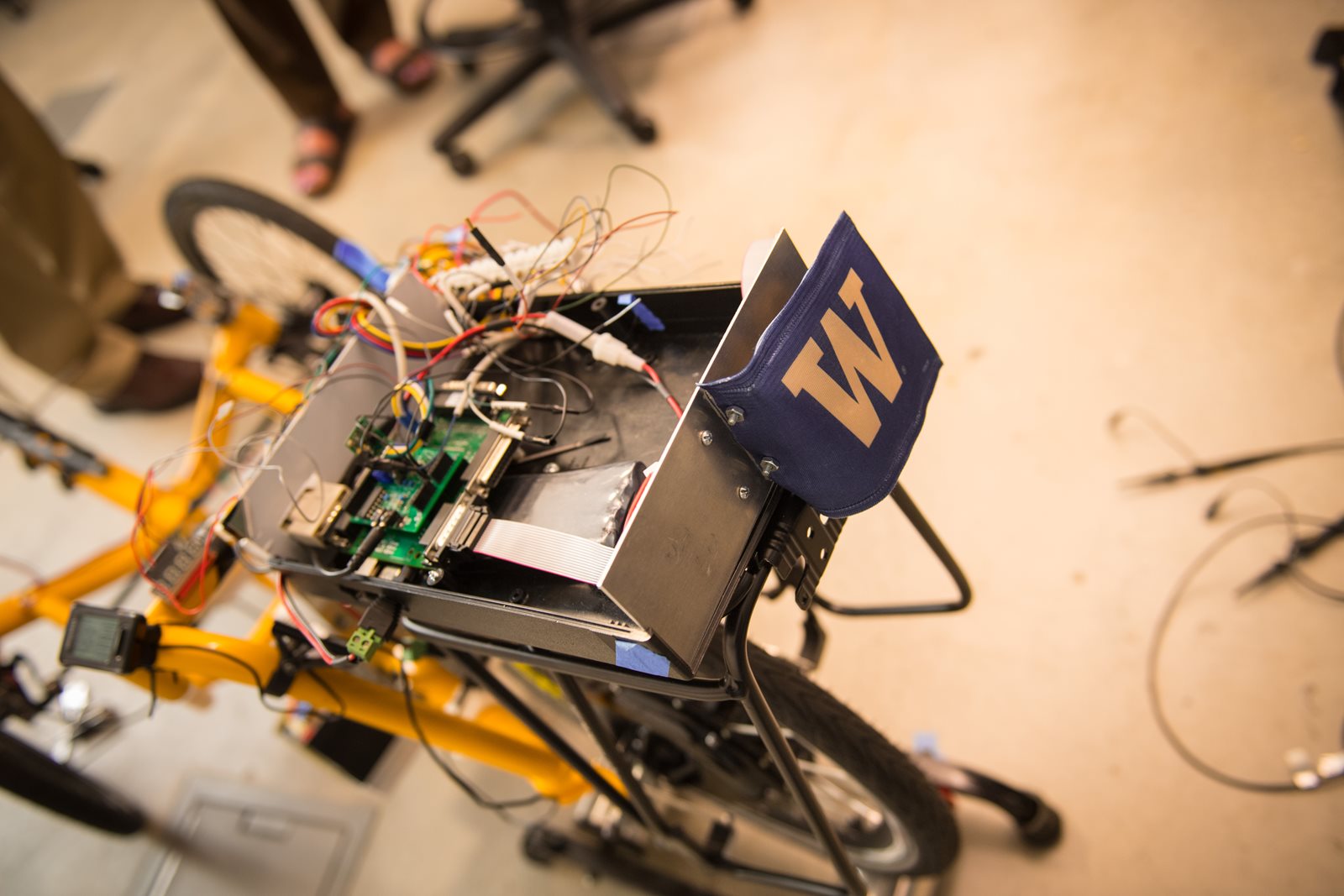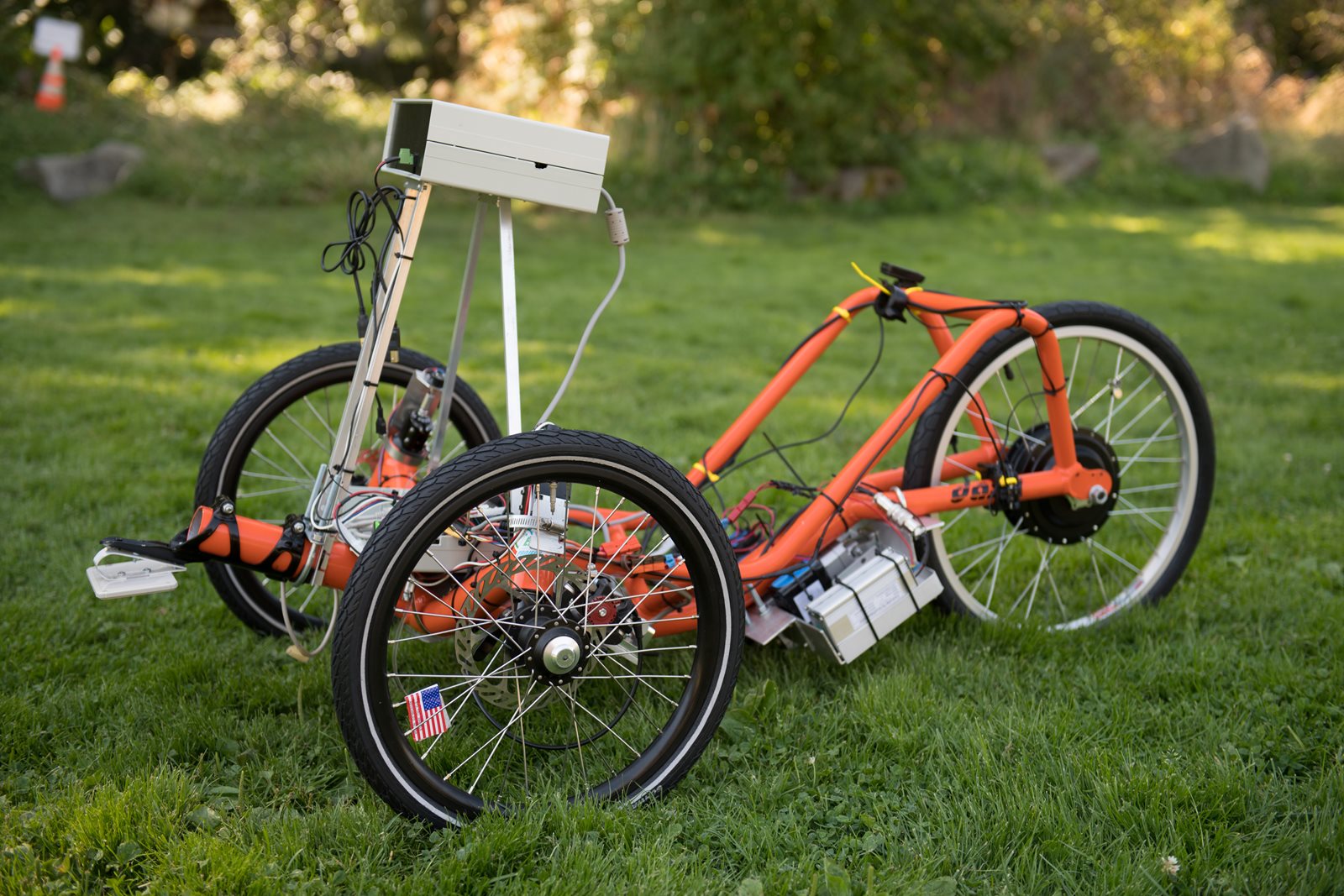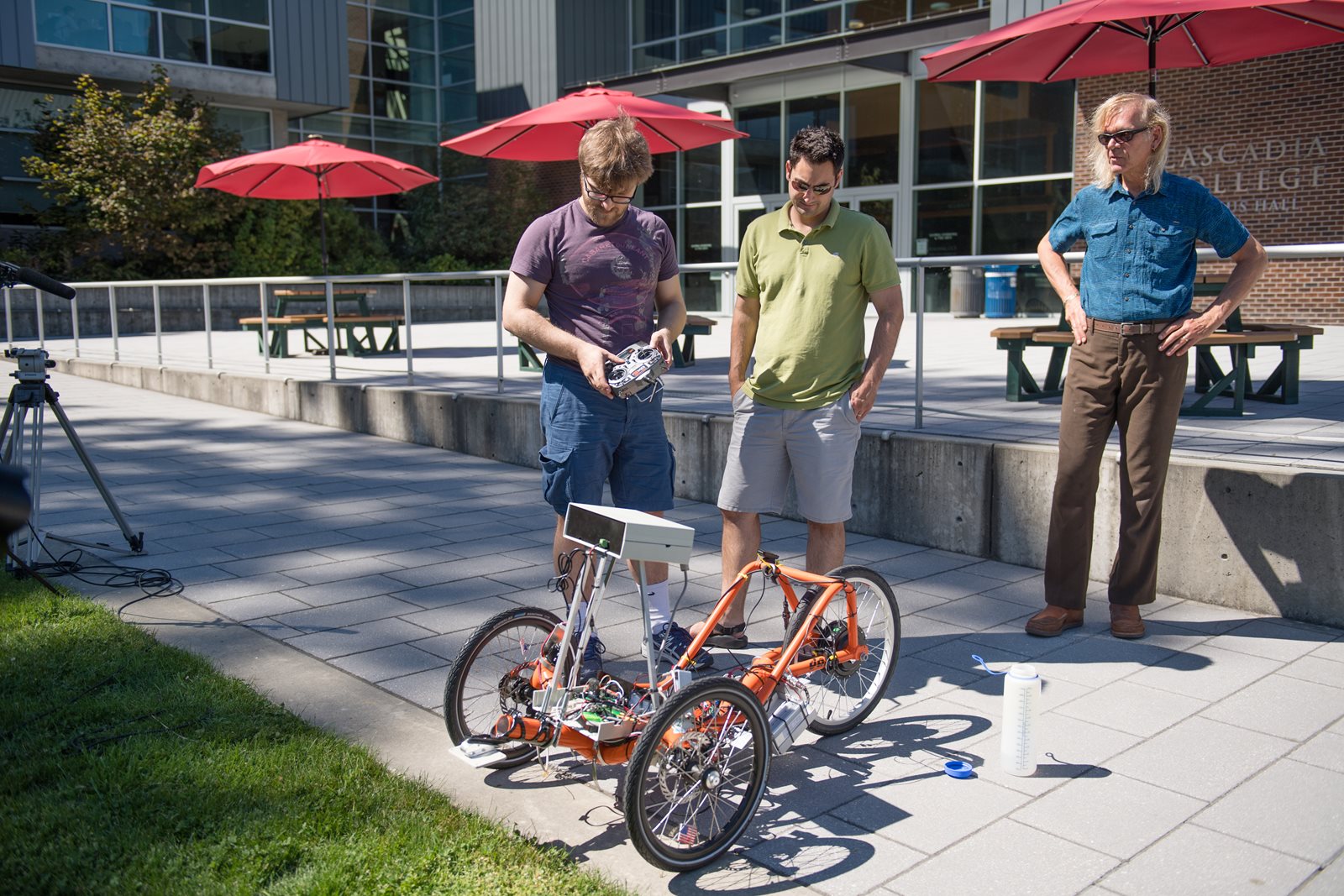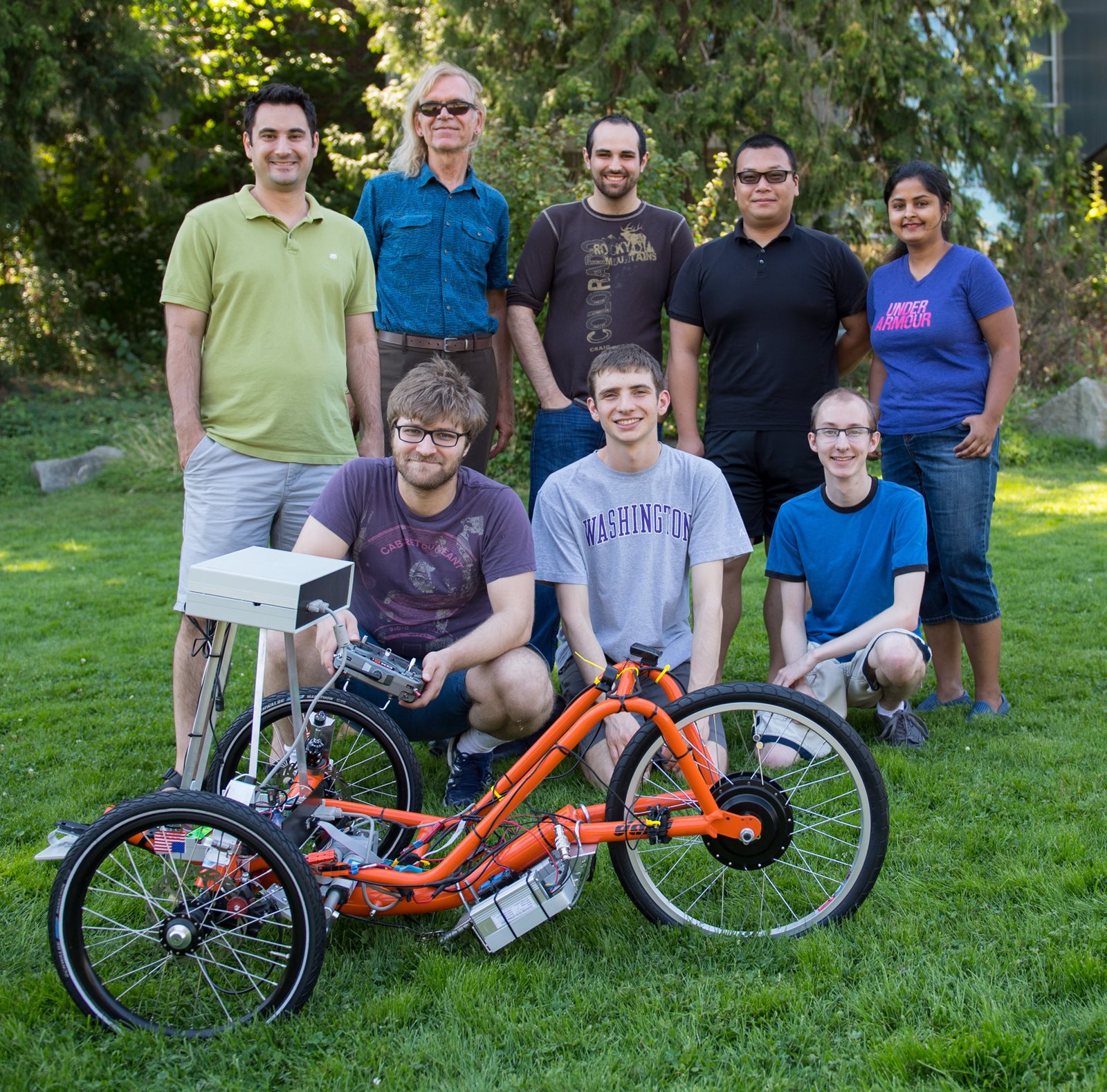Video, photos by Marc Studer
Story by Douglas Esser
On a shaded campus lawn on a summer afternoon, Jeremy Bobotek sent a signal to a three-wheeled vehicle strapped with electronics, batteries and mechanical gear. The orange contraption quickly executed a circle, making him hop out of its path.
Bobotek had sent the signal from a controller, like a remote control device. But he wasn’t controlling the wheels like you would with a toy car. He simply told the vehicle to make a circle. It did so by driving itself.
“You just saw an autonomous baby step,” said Tyler Folsom, University of Washington Bothell affiliate professor in computing and software systems and advocate for self-driving bicycles.
It was the first time, on Aug. 18, the vehicle had executed a “circle test” out of doors. Making it go, turn and stop is the first step toward higher-level, expanded paths, says Folsom.
The orange vehicle, right, was once a recumbent tricycle. It was cut down for testing. Another, yellow, test tricycle in the workshop lab in Founders Hall (UW-1), left, still has a passenger seat. It looks closer to the vision Folsom has for self-driving machines that could change the way people think about autonomous vehicles.


“I’m trying to shift the talk about self-driving cars to self-driving bicycles and making sure bicycles are part of the automation equation,” says Folsom.
The effort to get autonomous tricycles rolling is ramping up with a $75,000 grant from Amazon Catalyst, an initiative by the Seattle-based online retailer and UW’s collaborative innovation hub CoMotion. The aim is to promote bold projects with global impact proposed by members of the University of Washington community.
The Amazon grant enabled Folsom to hire five interns plus a visiting scholar from India, Shailja (who does not use a surname). She completed her electrical engineering degree last summer from the India Institute of Technology in Kharagpur where she worked on visual navigation for a mobile robot.
“Amazon's backing has enabled me to attract a talented band of students,” said Folsom. “It gives me confidence that the quest for energy sustainability in transportation is more than a pipe dream.”

Another 15 students are volunteers or working on capstone projects, making more than 20 people pushing the self-driving bicycle idea at UW Bothell.
Bobotek, a computing and software systems major in his final year, above with Folsom, works on the control software from his laptop.
“It means I get experience in something I like doing,” he said. “For me, it’s a fun project and also helps further what I want to do.”
The project also has received support from Kerika, a task management software company in Issaquah.
Folsom says self-driving bikes could have a global impact in several ways. Production models would cost far less than a self-driving car. Widespread use could significantly improve safety and speed up local transportation in a city. Any fossil fuel reduction could benefit the climate.
Although, the electronics look impressive, the goal for the autonomous trikes is to use the minimum amount of computation power, says Folsom.
“We’re using things much less powerful than a smartphone. Part of the concept is that you don’t have to spend as much money as the big car companies are spending, “says Folsom. “My contention is you don’t need all that much processing power to make autonomy happen.”

That would be easier if another one of Folsom’s big ideas catches on, and that’s reserving space for autonomous vehicles.
“Google is tackling the hardest possible problem, which is driving in traffic,” Folsom says. “If you get rid of the traffic you make it a whole lot easier.”
A vehicle more practical than a recumbent tricycle might be the distinctive ELF, built by the Organic Transit Company of Durham, North Carolina. It’s a solar and pedal-powered electric vehicle with an egg-shaped shell that can carry a couple of people. Folsom is talking about equipping one with autonomous capability.
Small autonomous electric vehicles that can be recharged through solar or wind power might be used in public transportation, like a self-driving taxi system. Such vehicles should be able to operate with minimal regulations – if not as a bicycle then as a scooter, says Folsom. The goal is to keep the cost of each one under $10,000 – pricy for a bike, but cheaper than a car. As a transit alternative, 100 of them would cost the same as a $1 million bus.
Meanwhile, Folsom keeps pushing not just his bikes, but the way people think about transportation.
“The big thing for me is the effect this could have on global warming. If we can push transportation in this direction – very light vehicles – it’s a major win for the environment,” says Folsom, who rides an electric bike and drives an electric car himself. “I want to have the technology that lets people make that choice if we decide, yes, by the way, survival would be a nice thing.”
Front row, from left: Jeremy Bobotek, Dylan Katz, Aaron Conrad
Back row: Shyawn Karim, Tyler Folsom, Chase Skelton, Pengfei (Peter) Zhu, Varsha Srivastava




